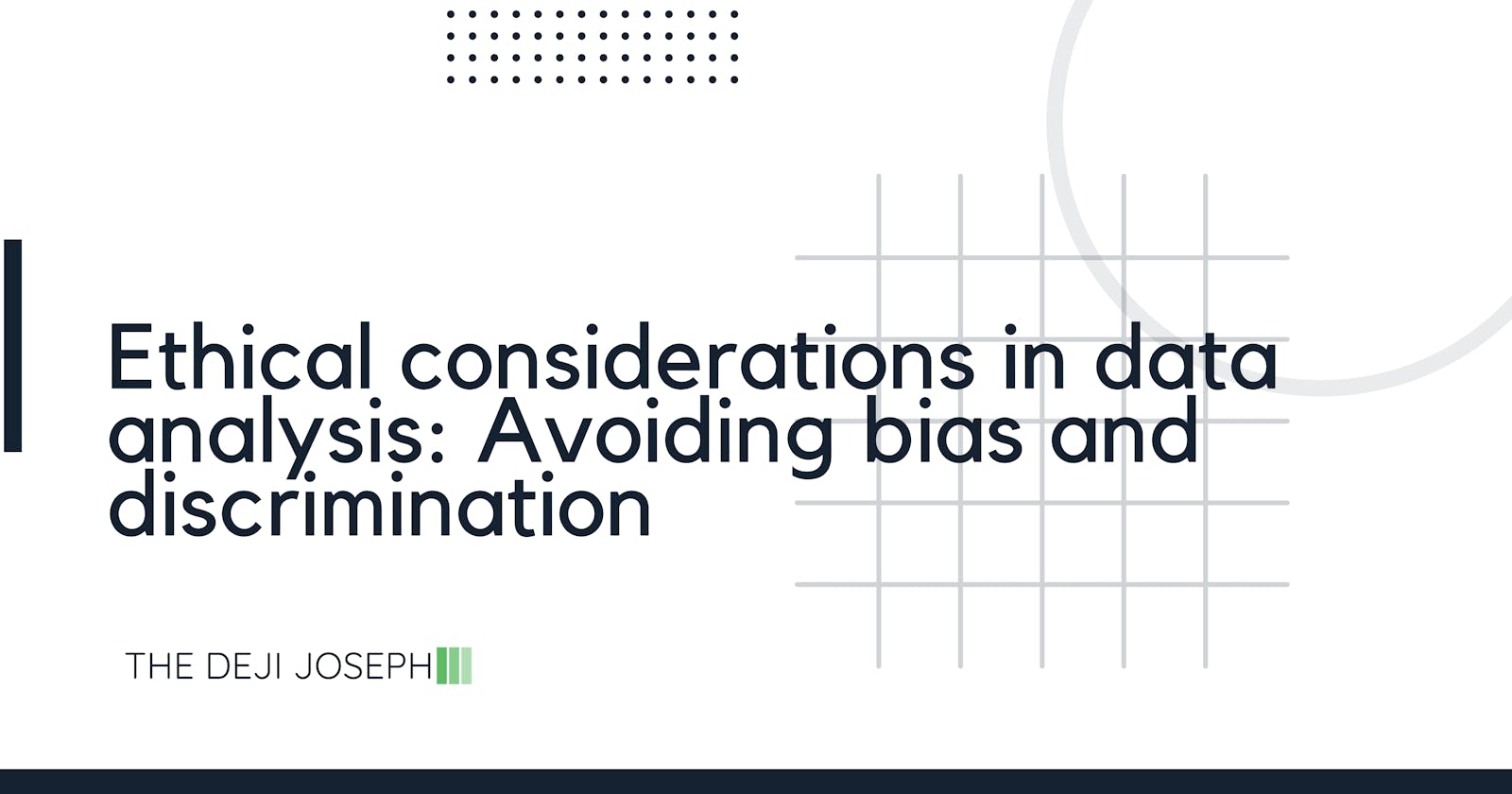Data analysis is a powerful tool that can uncover important insights and help make data-driven decisions. However, it's essential to consider ethical considerations when conducting data analysis to avoid bias and discrimination.
Bias occurs when a data analyst favours or discriminates against certain groups or individuals. Some ways in which bias can creep into data analysis include sampling bias, confirmation bias, and selection bias.
Sampling bias occurs when the sample used for analysis is not representative of the larger population. This can lead to inaccurate conclusions about the population as a whole.
Confirmation bias occurs when a data analyst looks for data that confirms their pre-existing beliefs or assumptions. This can lead to a skewed analysis that ignores important data that contradicts their beliefs.
Selection bias occurs when the selection of data is biased towards a certain group or individual, leading to inaccurate analysis.
I stumbled upon this not too long ago; It was very enlightening to see how these biases play out when conducting data analysis and how to avoid it. I wrote more about it on my blog here.

